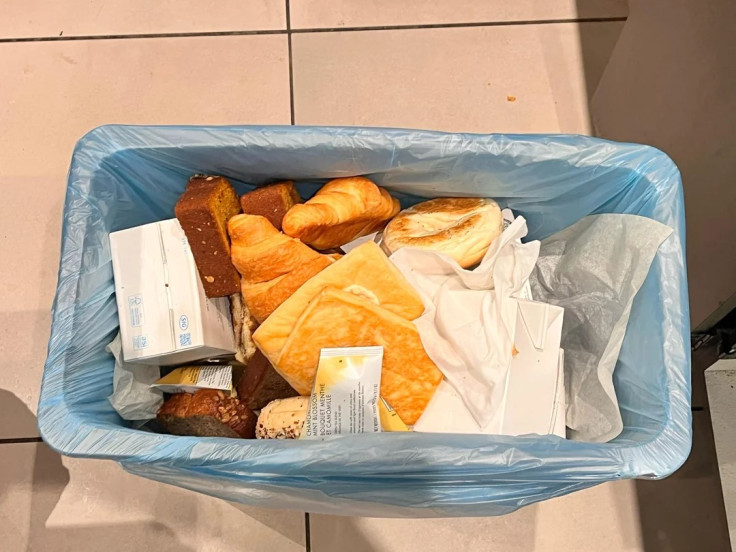'It Hurts To See This': Starbucks Says It Donates Leftovers — So Why Are Workers Being Told To Throw Them Away?
Starbucks pledges to fight food waste, yet staff say they're still told to throw away leftovers in some US stores
Starbucks promotes its FoodShare donation programme as a cornerstone of its sustainability strategy, claiming to have donated more than 111 million meals since 2016. However, while the company insists that all unsold food in its US and Canadian stores is eligible for donation, reports suggest that employees are still instructed to throw away leftovers, raising questions about how consistently the pledge is applied on the ground.
A Global Pledge to Fight Food Waste
Launched in 2016, the initiative allows employees, referred to internally as 'partners,' to collect unsold food at the end of each day for donation to local food banks.
The company works with Feeding America and other hunger-relief organisations to distribute meals via refrigerated backhaul logistics.
As of 2025, Starbucks reports having diverted over 133 million pounds of food from waste streams and donated more than 111 million meals through FoodShare.
The programme was recently recognised at the 2025 Engage for Good Halo Awards for its impact on food insecurity and corporate social responsibility.
In Europe, Starbucks operates similar food rescue efforts, often in partnership with local charities and food banks.
The company is also working with the Global FoodBanking Network to expand food bank capacity in key Asian markets, including India, Thailand, and Vietnam.
Store-Level Confusion in the US

Despite the national rollout of FoodShare, some Starbucks employees have raised concerns about inconsistent implementation.
Reports on social media and Reddit suggest that in specific locations, staff are still instructed to discard unsold food; sometimes under the impression that donation is not permitted or logistically feasible.
While these claims are anecdotal and not representative of official policy, they highlight a disconnect between corporate messaging and store-level execution.
Starbucks' own Food Donation Guide outlines three donation models, including direct pickup by NGOs, discounted food programmes, and backhaul logistics, but notes that implementation depends on local infrastructure and partner availability.
The guide also emphasises that food donation is protected under the Good Samaritan Act, which shields companies from liability when donating in good faith.
Additionally, Starbucks receives a US federal tax benefit for every pound of food donated, which it reinvests into food rescue logistics and hunger relief efforts.
EU Practices More Consistent
In contrast, Starbucks' European operations appear to follow more consistent donation practices.
In markets such as the UK, Germany, and France, surplus food is routinely collected and redistributed through established charity networks.
This aligns with broader EU sustainability goals and waste reduction mandates, which encourage businesses to divert edible food from landfill.
Starbucks Responds
Starbucks maintains that its FoodShare programme is active in 100% of company-operated stores in the US and Canada.
In a statement to the US Food Waste Pact, the company reaffirmed its goal to reduce food waste in US operations by 50% by 2030, aligning with Sustainable Development Goal.
Kelly Goodejohn, Starbucks' Chief Social Impact Officer, said: 'Through our FoodShare programme, we take an innovative approach to reduce food waste and support hunger relief by donating surplus food from our coffeehouses to local food banks.'
The company's partnership with the Global FoodBanking Network reinforces its international commitment to food rescue, with Starbucks pledging to donate 7 million meals globally during its 2025 'Month of Good' campaign.
Starbucks became a signatory of the US Food Waste Pact in 2024, joining other quick-service restaurants in a collaborative effort to improve food system resilience and reduce environmental impact.
© Copyright IBTimes 2025. All rights reserved.





















